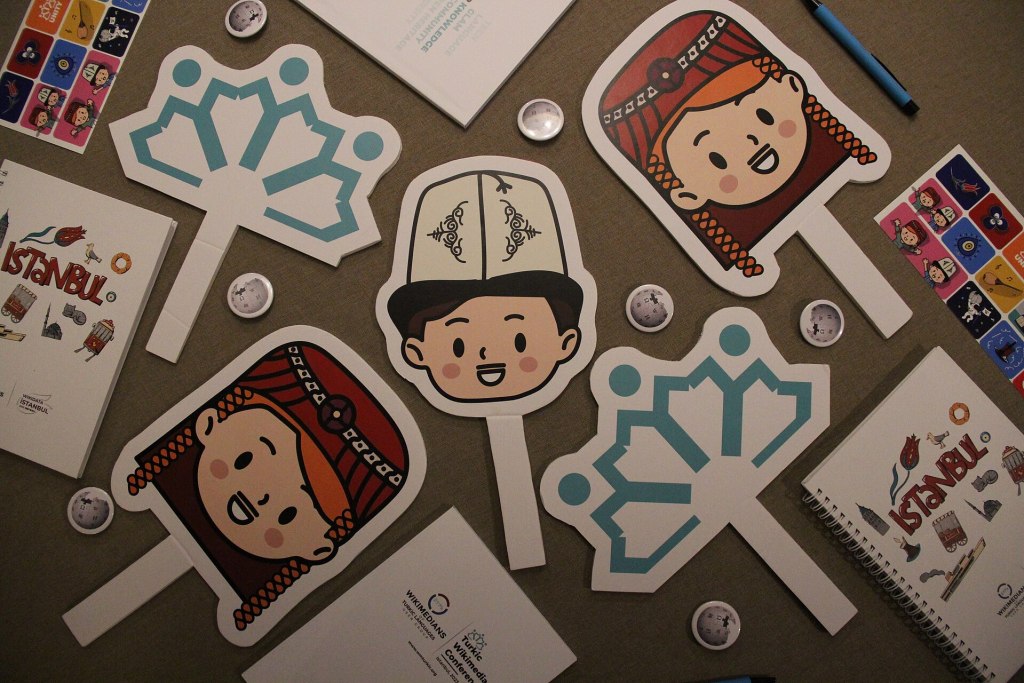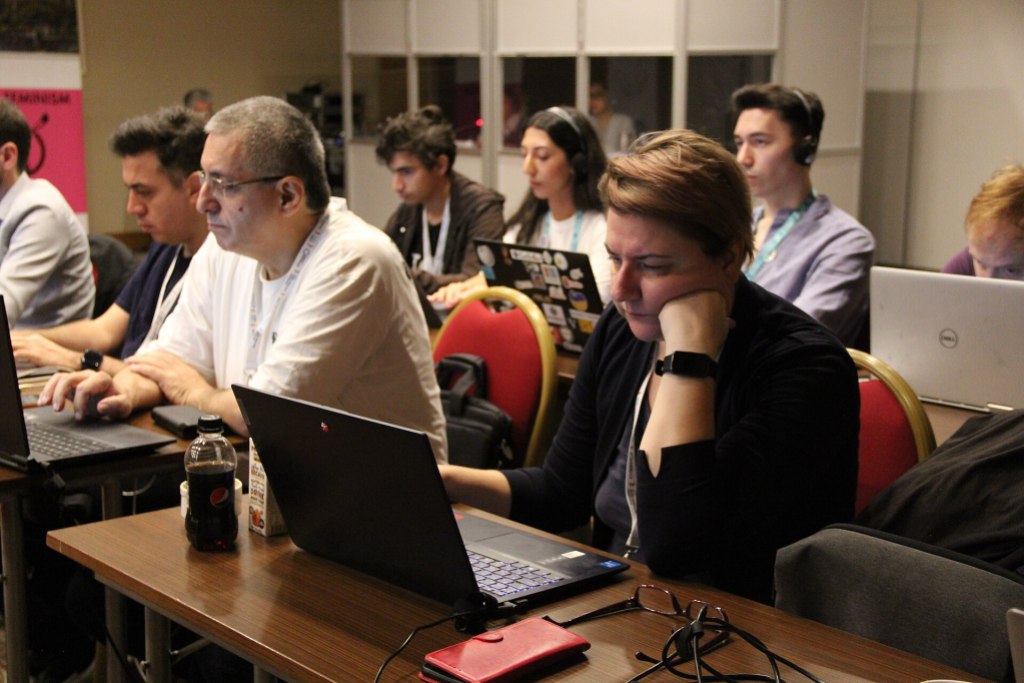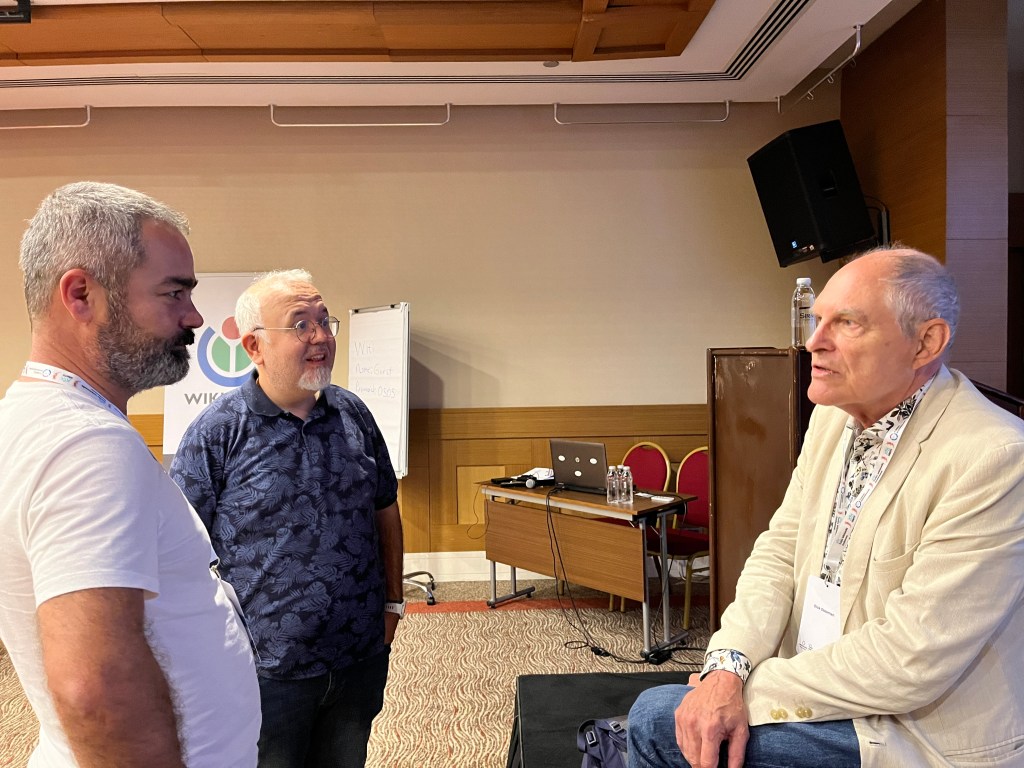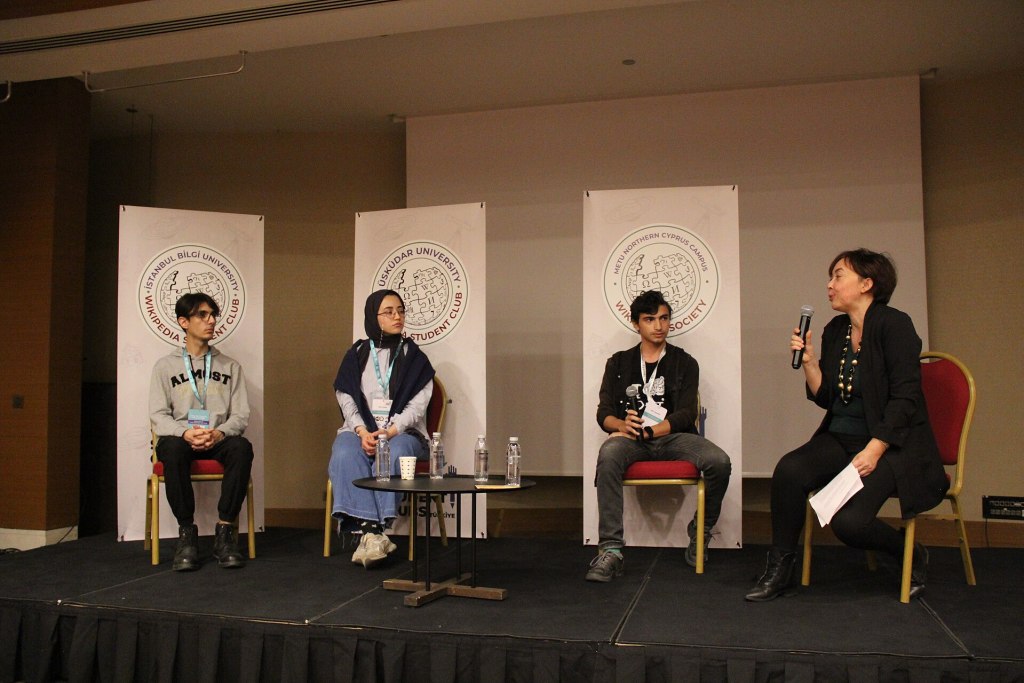Turkic is a family of languages usually thought to consist of about 40 languages spoken in an area covering from Turkey all the way to China. According to UNESCO Atlas of the World’s Languages, many Turkic languages are classified as endangered languages at different levels; and some Turkic languages have relatively small Wikimedia projects with few contributors.
The Turkic Wikimedians Conference 2023, held in Istanbul from October 20 to 23, united contributors from the Turkic-speaking world to empower them in their ongoing efforts to safeguard their culture and language by providing them some magic super powers.
The event had participants from the Wikimedia projects of those languages: Azerbaijani, Bashkir, Kazakh, Kyrgyz, Tatar, Tuvan, Turkish, Turkmen. There were also invited participants to share their knowledge from countries such as Georgia, Hungary, Italy, Poland.
Are you curious about what magic superpowers the attendees of the conference were presented during this 3 days event? Please find a summary below.
Organizational knowledge superpower
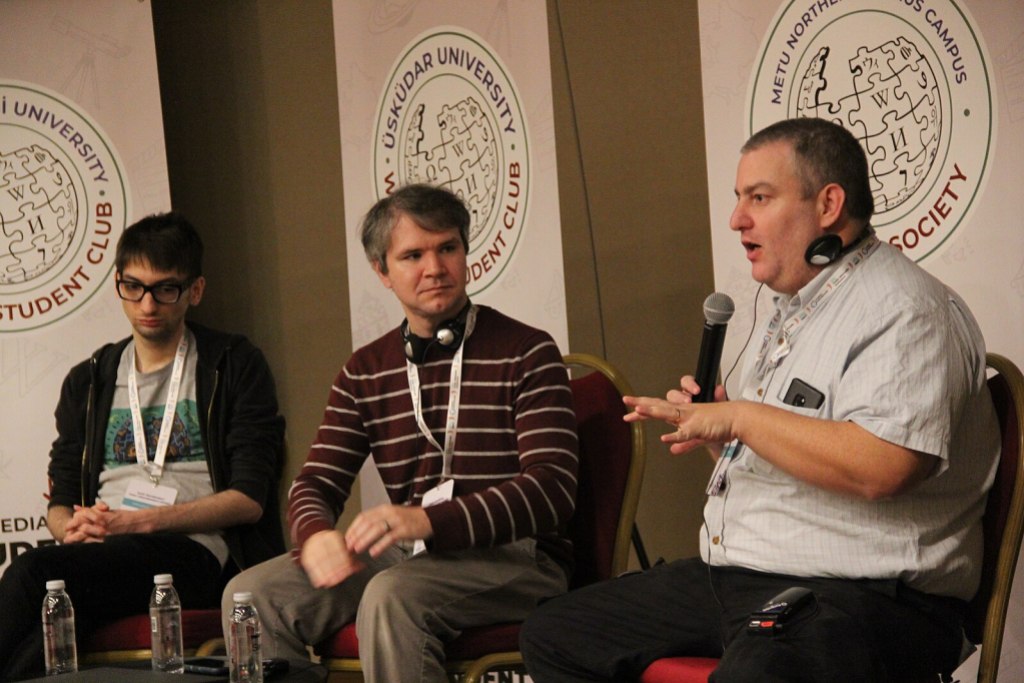
Historically, the Turkic-speaking communities have not been very active in the Wikimedia Movement. Some are based in independent countries and many are from federal or autonomous republics of bigger countries having federal structure; and did not have a chance to experience being a part of a global movement previously. Considering this, the conference started with a presentation explaining the structure of Wikimedia Foundation (WMF) and introducing how the communities could get supported by the Movement and the WMF. On other days it was possible to learn more by attending a presentation about the WMF funding programs and joining a Q&A session about WMF. All this helped the participants to be equipped with the organizational knowledge superpower.
Technical self-confidence superpower
In order to make more Turkic Wikimedians feel comfortable making changes to Wikimedia’s software, one session of the first day briefly introduced the attendees with technologies behind Wikipedia’s software work. At the rest of the conference, there were hands-on workshops to learn more about specific Wikimedia projects such as Wikidata Lexeme and WikiSource, as well as some helpful tools like Open Refine and Patty Pan.
Beyond the Wikimedia projects, the conference attendees had the chance to join workshops facilitated by Mozilla Voice and OpenStreet Map volunteers; as well as exploring the historical evolution and diverse manifestations of artificial intelligence (AI) with two professors from Turkish universities and discussed whether AI offers any opportunity to contribute, collaborate, and innovate across Wikipedia and beyond. All this was designed to develop technical self-confidence superpower.
Content building superpower
During the 3 days, the editors of different Wikimedia projects from the Turkic region shared their experiences in editing. A psychology professor have shared her experience about editing psychology articles at Wikipedia, pointing out some issues to consider to make sure the psychology information on Wikipedia is reliable; a 74 years old Dutch photographer talked about his experiences on photographing and documenting Türkiye in last 30 years; and his thoughts on sharing his archive on the Wikimedia Commons project; another Wikimedian talked about “the blindness and wiki environment”. Those were examples of presentations for strengthening the listeners in their content building superpower.
Event-organization superpower
Learning the experiences of community leaders in organizing events and developing programs is very valuable. The conference enabled us hearing about the wiki contests in Tatar Wikipedia, wiki camps in Georgia, hack-a-thons in Greece, Student Clubs in Turkish universities and listening to the history of 3 generations of Wikipedia Education in Turkish schools. All this helped to grow the event-organization superpower of the conference attendees.

Can you help us translate this article?
In order for this article to reach as many people as possible we would like your help. Can you translate this article to get the message out?
Start translation
